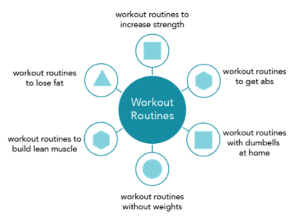
When recruiting for your next accountant, you’ll want to narrow down your candidate pool to only the best and brightest.
So, what exactly should you be looking for, and how do you go about finding the perfect combination of qualifications and skills?
Essential qualifications
Accountants come from varied educational backgrounds; while some have finance degrees, others have worked their way up through the ranks after leaving school.
Whatever path a candidate has chosen to follow, they should have developed and consolidated their knowledge through industry recognised qualifications.
Here are some of the qualifications you should require when seeking your next accounting professional.
AAT: The Association of Accounting Technicians offers internationally recognised qualifications that furnish candidates with a solid grounding in fundamental theory and practice.
ACCA: The Association of Chartered Certified Accountants develops an advanced knowledge of financial accounting, allowing specialisation in areas such as audit and taxation.
CIMA: The Chartered Institute of Management Accountants is the world’s largest professional body of management accountants, and prepares candidates to drive high business performance in a sustainable way.
ACA: The Association of Chartered Accountants (ACA) is a highly prestigious qualification, the pinnacle of achievement for many accountants. The qualifications mentioned previously offer an ideal route into becoming a Chartered Accountant, normally giving exemptions from certain ACA exams.
Technical abilities
Regardless of the responsibilities and level of seniority you require of your new team member, you should expect to see certain technical capabilities.
Maths: Despite the fact that most number crunching is carried out using calculators and accounting software, accountants must be aware of which equations to use in different contexts, and how to perform them using the appropriate tools. Importantly, your new candidate must also be able to spot anomalies quickly, with a good sense of the expected outcomes of equations.
Software: Gone are the days of recording everything by hand, and relying on storage rooms bigger than the local library. Today, accountants need to be software savvy, able to enter, locate, and process data electronically.
Tax: Legislation is constantly changing, and accountants must be able to stay up-to-date through regular research, reading, and professional development activities. While some roles have few encounters with this field, many organisations rely on their accountants to advise clients or the rest of the business on tax issues, from tax income limits to taxable items.
Soft skills
Technical prowess is just one part of the equation; your new accountant will also need a variety of other key skills in order to thrive in your organisation.
Communication: Not only do accountants need to be able to communicate at a technical level with colleagues, but they must have the ability to adapt financial information for non-finance professionals.
Organisation: Good organisation is at the centre of effective accounting, which relies on the accessibility, clarity, and accuracy of financial information.
Time management: The world of accounting is rife with deadlines. Your new team member must be able to plan and prioritise like nobody’s business. Part of good time management is also being able to concentrate on repetitive tasks for prolonged periods of time.
Interview techniques
Now you know what knowledge and skills to require of candidates, it’s time to think about assessing these at the interview stage.
It’s all very well asking someone why they think they’re ideal for the role, but should you take it all for granted? We’ve all experienced candidates who appear to tick every box at interview, but turn out to have significant skills gaps when they start in their new role.
The best way to avoid this is to get candidates to demonstrate, not just refer to, their skills at interview, and you can do this through situational questions. These should describe a real situation that could arise within the role, and ask the candidate how they would respond.
Situational interview questions are ideal for putting a range of skills to the test. For example, you could ask candidates how they might handle facing a number of specific tasks at once, how they might respond to a particular client request, or how they would advise on a tax query.
Depending on the specific requirements of the role you’re recruiting for, you could also ask candidates to complete tests or practical tasks that assess technical skills. For example, you could ask interviewees to complete a maths test, or perform a task using accounting software.
To find out more about identifying the perfect accounting candidate, sign up for the webinar, hosted by AAT qualified accountant and accounting tutor Patricia Barlow. If you can’t attend, you can choose to receive a recording afterwards.
Business & Finance Articles on Business 2 Community(48)
Report Post




